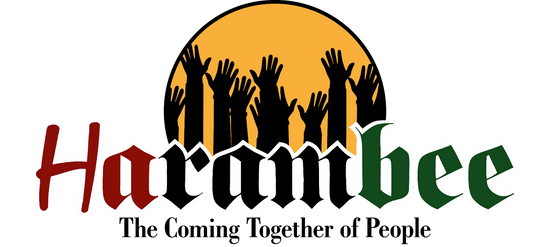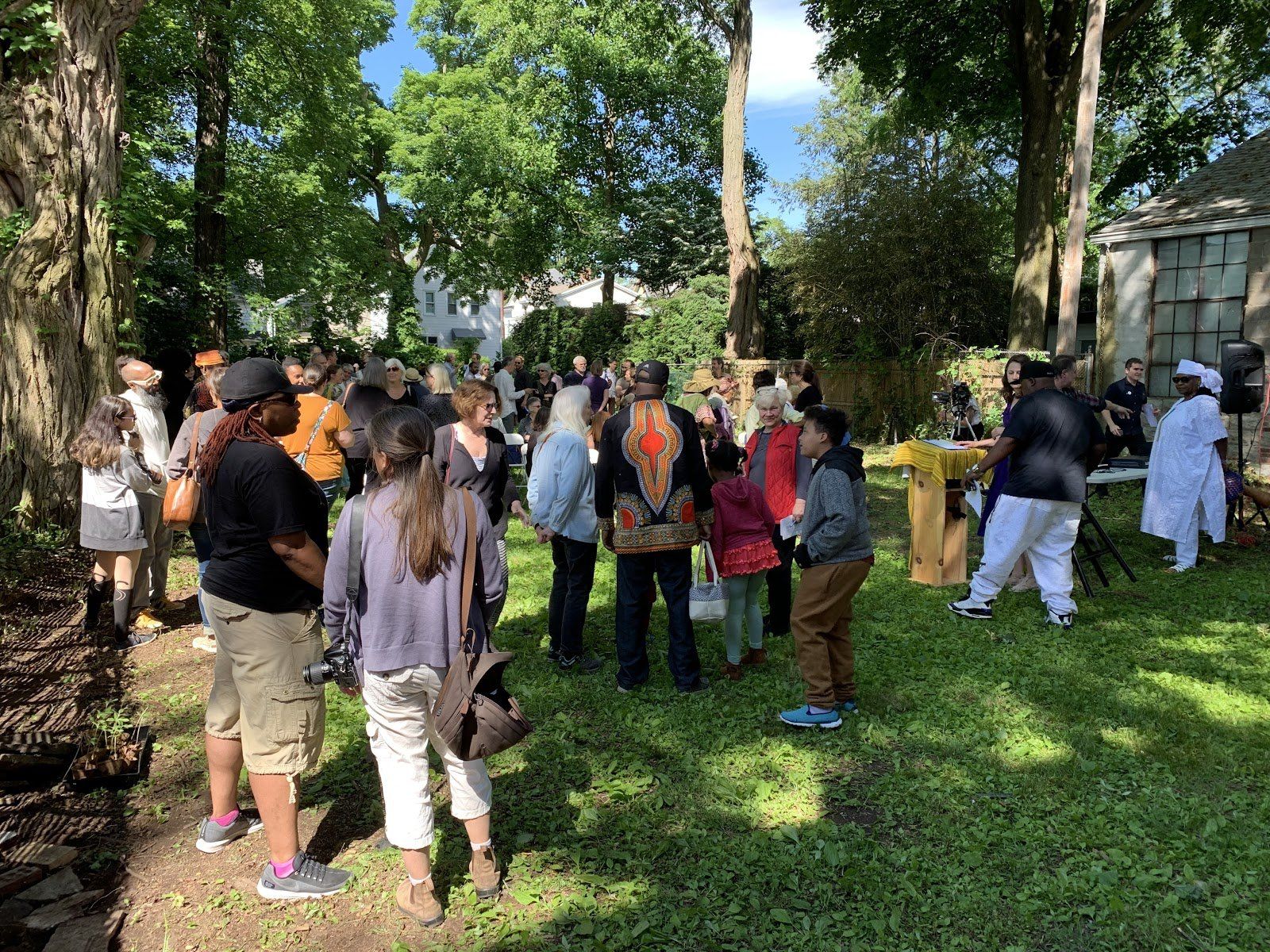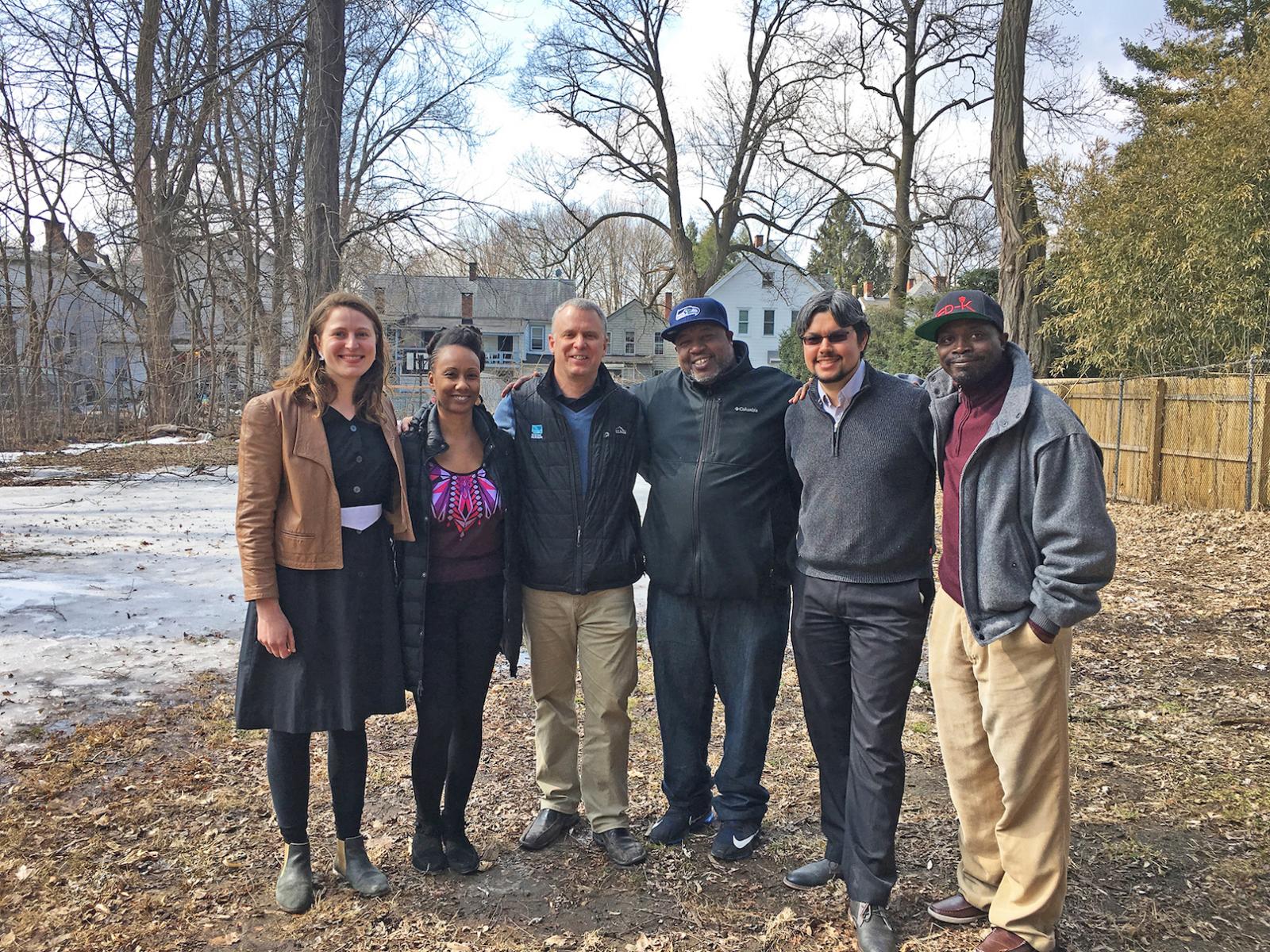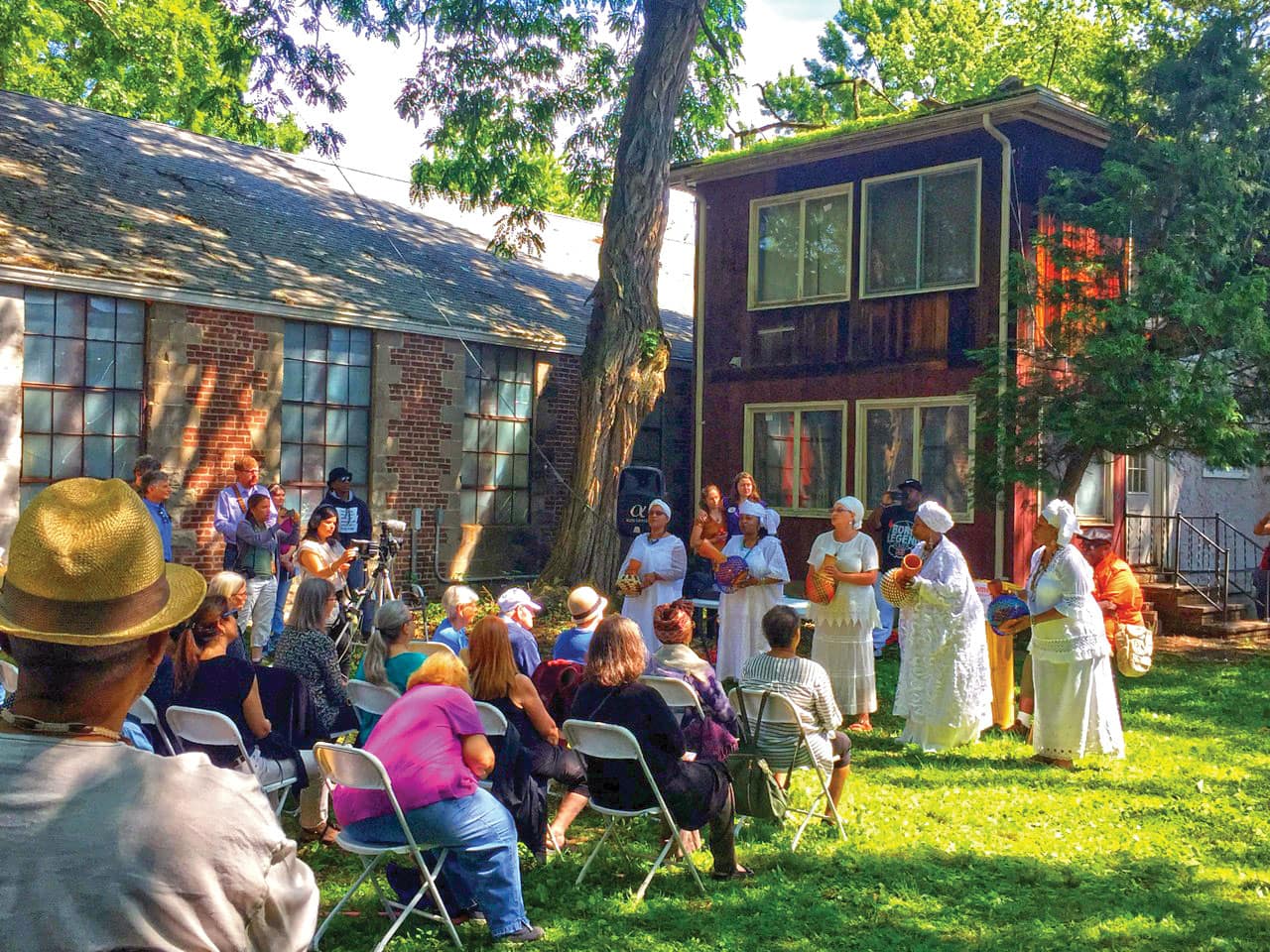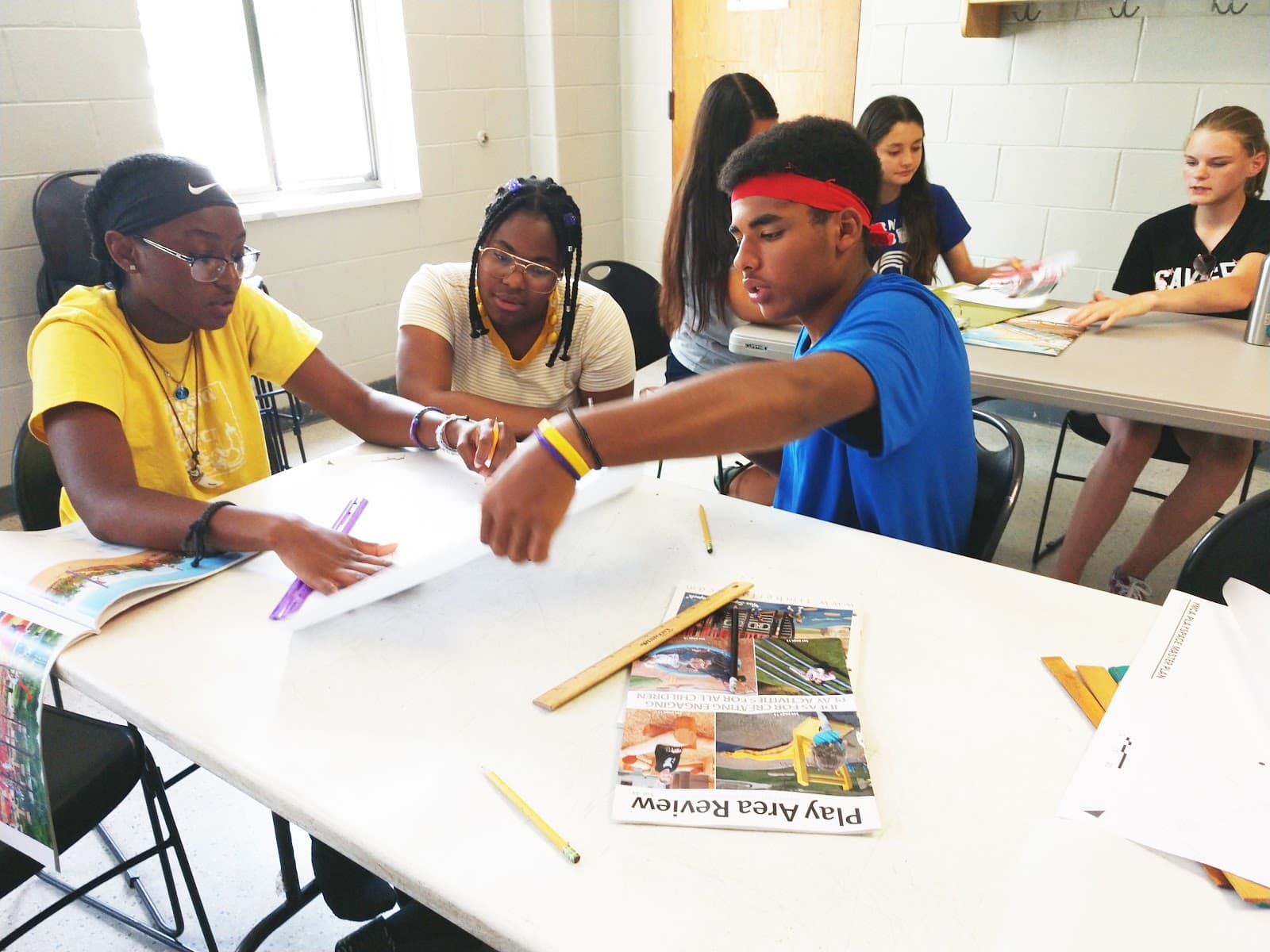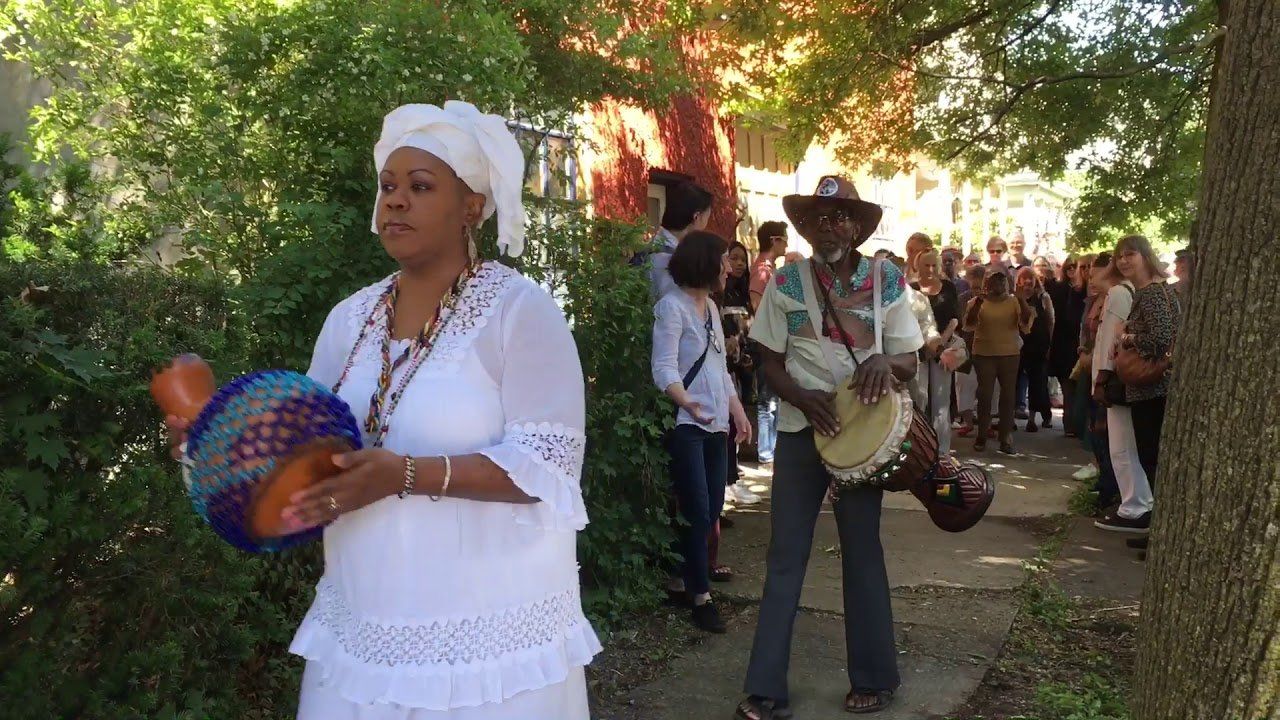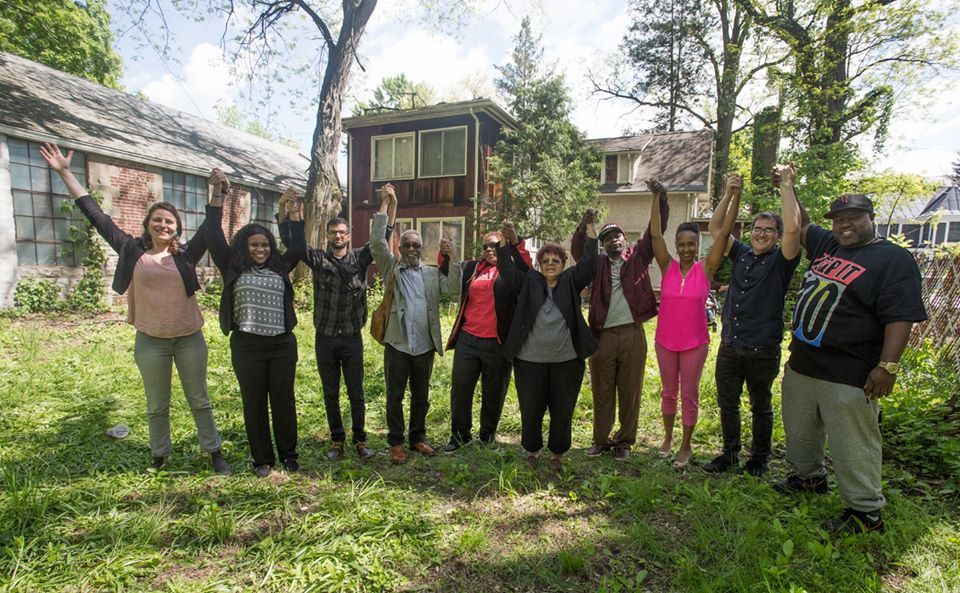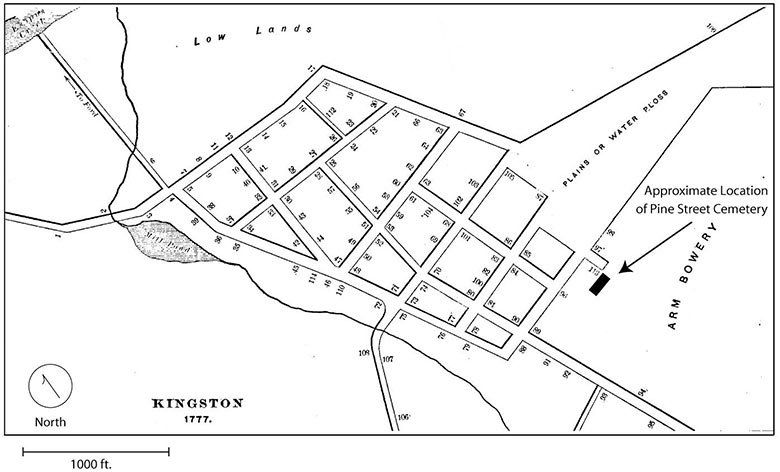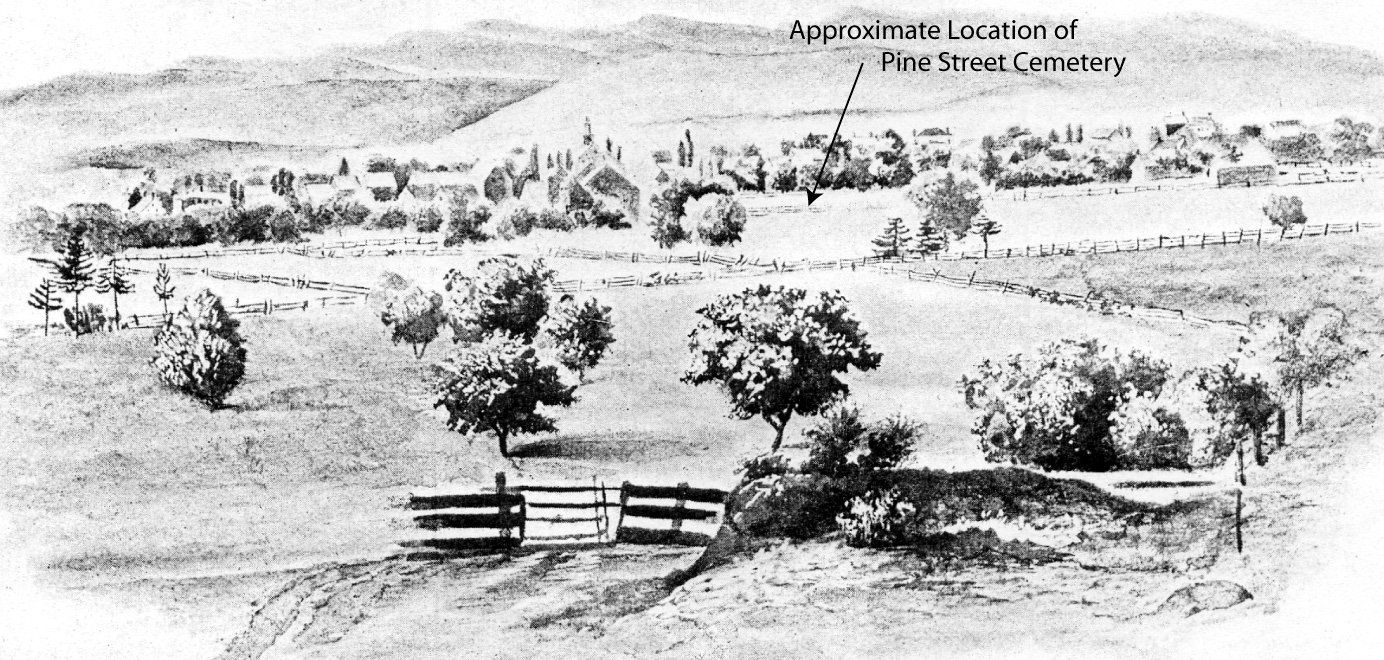Pine Street African Burial Ground
Thanks to community support, last year Kingston Land Trust raised the funds to purchase this forgotten site, in partnership with Harambee and in collaboration with Scenic Hudson.
Next steps for 2021
- Co-create a virtual gallery to display the work of the Youth Design Team and City College architecture class designs
- Support Harambee in implementing aspects of the Youth Design to covert this residential backyard that contains the burial ground, into a memorial site that is open to the public
- Transfer the ownership of the Burial Ground from Kingston Land Trust to Harambee with a conservation easement to forever protect the sacred land
- Facilitate more ground penetrating radar with SUNY New Paltz to determine the extent of the graves
- Support Harambee in land stewardship, helping with clearing and plantings
- Support the development of documentary film clips that tell the story of the site, its history, protection and design
History
1750: The trustees of Kingston identified an area outside the walled settlement of Kingston (formerly Wiltwyck) to be used as a burial ground for enslaved Africans, where they may have been buried since the 1660s. African people who were enslaved in and around Kingston were denied church burial.
1827: Slavery ended in New York State.
1853: The Burial Ground was sold to private owners when the borders of the City of Kingston expanded into the surrounding rural area. A lumberyard was built on top, but the graves were not relocated.
1858: The Mount Zion African American Cemetery then opened on South Wall Street, and is still there today, protected as a local landmark.
1920s: The house that remains on site today was built as a private residence, with a partially dug out basement.
1990: Archaeologist Joe Diamond and Kingston historian Ed Ford did an archeological survey of Kingston and tested bones found in neighboring basement that were of African origin.
1996: An African Burial Ground preservation group was formed in response to an attempt to build a parking lot on the Burial Ground, but permanent protection failed due to lack of funding and inaction by the City of Kingston despite robust historic documentation and the findings of human remains of African origins.
2006: Owned in Life, Owned in Death: The Pine Street African and African-American BurialGround in Kingston, New York was published by Joseph E. Diamond.
Juneteenth 2019 at our Community Gratitude Ceremony at the Burial Ground, to celebrate its successful protection, and for the first time in history invite the community in to finally honor it and the people buried within.
2019 WAMC Radio interview with community members, as we were campaigning to protect the Burial Ground
Bringing History to Light
2008: Kingston Land Trust (KLT) was established.
2011: Kingston Land Trust formed the African American History Committee and hosted the Rededication of the Mount Zion African American Cemetery and identified the need to protect the Pine Street African Burial Ground, under the Leadership of Executive Director Rebecca Martin.
2013-2017: The Kingston Land Trust was volunteer run and did not have capacity to pursue the property, and the owner was not able to be found so the property was stuck in pre-foreclosure.
2017-2018: KLT hired four staff, who took up the baton and investigated the status of this property. Harambee formed, and Kingston Land Trust and Harambee joined forces to determine how to protect this land.
2018: The KLT arranged for an offer to the bank to be made by an aligned organization to purchase the land at the price of a cemetery but that low offer was never considered by the bank. The bank then listed the property at auction. The KLT, in coordination with Harambee, and with the support of Kingston's Mayor, Steve Noble, requested that the bank donate the land, but they said they were unable to do so, so we asked them pull the land from auction and hold it while the KLT and Harambee raised money to purchase it.
2019
- The KLT had asked the bank to pull this pre-foreclosed property from auction in November of 2018 and hold it while we raised awareness and funds needed to purchase this unmarked historically significant site.
- In early 2019, staff at SUNY New Paltz’s Geology department used ground-penetrating radar to survey the site: The results indicate countless graves onsite that have long been ignored
- During Black History Month Kingston, Harambee and KLT presented our plans and ask to the public to protect the site. The meeting held 75 people and took place at the African Roots Library
- On May 23rd, 2019, we purchased 157 Pine Street (and Rear Property) in Uptown, Kingston, forever protecting the long forgotten historic African Burial Ground contained within
- On September 24, 2019 the Kingston Land Trust was awarded the $20,000 that was allocated for Midtown in the City's participatory budget for the collaborative project: Pine St. African Burial Ground youth development program for design and community engagement. This is project proposed by KaN Landscape Design, and the Kingston YMCA Farm Project to the Kingston Land Trust and Harambee was filmed by Growing Films.
- In November, a local youth hip hop group performed a piece on the African Burial Ground at Academy Green as part of their Awakening Paths community showcase.
2020 (winter and spring)
- During Black History Month Kingston, the KLT and Harambee presented our detailed plan for how to transfer the land to Harambee. This community meeting was held at the Restorative Justice Center
- On March 10th, the Youth Design Team presented their final design proposal to the community, after 5 months of community engagement, investigation and design.
- On May 18th, City College students presented their designs on a community Zoom call.
